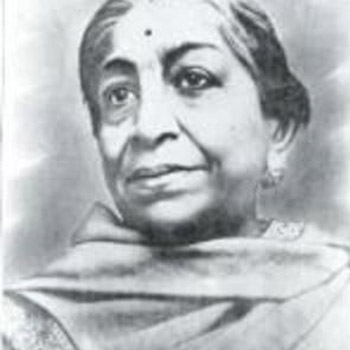Rabindranath Tagore
Rabindranath Tagore (1861–1941) remains one of the most extraordinary figures of modern history, a poet, philosopher, painter, composer, educationist, social reformer, and global humanist. Popularly known as Gurudev, he reshaped literature, music, and education in India while also becoming a cultural bridge between East and West. His life was a remarkable synthesis of creativity, social consciousness, and spiritual depth.
Early Life and Influences
Tagore was born on 7th May 1861 in Jorasanko Thakur Bari, Kolkata, into a leading Bengali family known for its cultural and intellectual contributions. His father, Debendranath Tagore, was a spiritual reformer, while the Tagore household was steeped in the Bengal Renaissance. Unlike conventional schooling, Rabindranath’s education was eclectic and home-based. He was drawn early to nature, music, literature, and philosophical reflection, experiences that profoundly shaped his worldview.
Literary Achievements
Tagore was the first non-European Nobel Laureate in Literature (1913), honored for his collection Gitanjali (Song Offerings). But his contribution went far beyond this milestone.
- Poetry: He wrote lyrical verses that celebrated both the beauty of nature and the spiritual quest of humanity. His poetry synthesized mysticism, romanticism, and universal humanism.
- Novels and Short Stories: Through works like Gora, Ghare-Baire (The Home and the World), and Chokher Bali, he explored complex themes of nationalism, tradition vs. modernity, and women’s emancipation.
- Drama: Tagore revolutionized Bengali theatre by blending allegory with realism, addressing social issues while remaining artistically profound.
- Songs and Music: A prolific composer, he created over 2,000 songs, known today as Rabindra Sangeet. His compositions two of which became the national anthems of India (Jana Gana Mana) and Bangladesh (Amar Shonar Bangla) are celebrated for their fusion of classical Indian ragas with folk and Western harmonies.
Educational Philosophy and Santiniketan
Tagore was a pioneering educationist who founded Santiniketan in 1901, later expanded into Visva-Bharati University in 1921. He envisioned education as a holistic and liberating process rather than rote learning.
- His model emphasized freedom, creativity, self-expression, and harmony with nature.
- Unlike colonial education systems designed for producing clerks, Tagore sought to nurture global citizens rooted in Indian tradition yet open to world culture.
- He invited scholars, artists, and scientists from across the world, making Santiniketan a hub of intercultural exchange decades before globalization became a familiar concept.
Social and Political Vision
Though Tagore distances himself from partisan politics, he was deeply engaged with social issues:
- Against Narrow Nationalism: While he initially supported India’s independence movement, he later criticized aggressive nationalism, urging instead for universal human unity. His essay Nationalism reflects his caution against blind patriotic fervor.
- Criticism of Colonial Power: His renunciation of the knighthood in protest of the Jallianwala Bagh Massacre in 1919 remains an iconic act of moral courage.
- Social Reformer: He spoke against caste inequalities, child marriage, gender discrimination, and the sterility of orthodox traditions, striving for a society based on dignity and progress.
A Global Renaissance Figure
Tagore toured extensively from Japan and China to Europe and America, delivering lectures, meeting intellectuals like Einstein, Yeats, and Romain Rolland, and introducing Indian philosophy and literature to the world. He became a living symbol of dialogue between cultures, respected both in the East and the West.
His Philosophy of Life
At the heart of Tagore’s vision was a belief in the oneness of existence and the union between humanity and nature. He saw God not as a distant entity but as an eternal presence shining through the ordinary joys of life. His humanism stressed:
- The harmony of freedom and responsibility.
- The need for inner growth alongside material progress.
- The celebration of beauty as a pathway to truth.
Legacy
Rabindranath Tagore’s legacy is profound and multifaceted:
- As a writer, he modernized Bengali literature and gave it universality.
- As an artist, he left behind thousands of paintings and drawings created later in life.
- As an educationist, he left Santiniketan as a living experiment in learning.
- As a humanist, he continues to inspire movements for peace, cross-cultural dialogue, and sustainable development.
Even today, his ideas resonate in discussions on nationalism, cultural diversity, education reform, and environmental consciousness.
Conclusion
Rabindranath Tagore was not just a poet but a complete visionary who saw beyond the barriers of geography, politics, and rigid ideologies. He infused literature with new life, transformed arts with his creativity, redefined education with human-centered values, and envisioned a world where harmony and freedom prevail.




